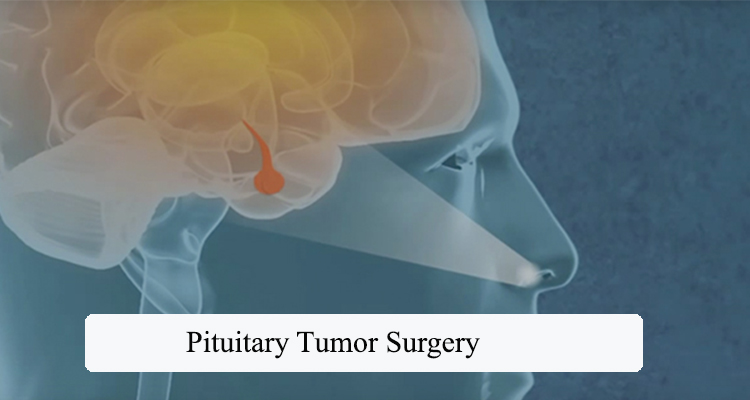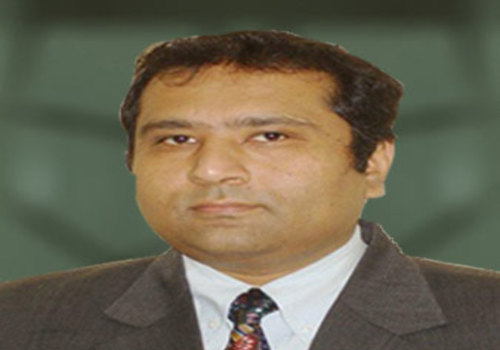Pituitary Tumor Surgery Success Rate

This article focuses on determining the success rate of Pituitary Tumor Surgery while discussing its need, side-effects and procedure.
Surgery is the main treatment for getting rid of Pituitary Tumor. However, how well the procedure might work on a patient depends on the type, location, and the size of a tumour. The surgical approach might also vary depending on the areas where the abnormal cells have spread.
Pituitary Tumor
Pituitary Tumor is a type of non-cancerous growth caused due to an unknown origin that might spread outside the skull.
The pituitary gland is present above the inner portion of the nose, at the bottom of the brain. It helps in regulating the majority of hormones, and chemical messengers inside the body by travelling with the blood stimulating other glands for producing other hormones. It is also called ‘master gland’ as it responsible for producing hormones that travel in the entire body. The growth of a large tumour in this area can compress the brain nerves and damage the brain.
Pituitary Tumor surgery is used to revive the normal functioning of the brain, by the removal of tumour that might be compressing the nerves of the pituitary gland.
Symptoms of Pituitary Disorder
• Severe Headaches
• Visual Field Effects
• Abnormal Body Composition
• Dramatic Weight Gain
• Impotence
• Irregular Menses
• Decreased Libido
• Mood Swings
Pituitary Tumor Surgery Success Rate
Most pituitary tumours are removed through transsphenoidal surgery. Transsphenoidal surgery is performed using an endoscope or other surgical instruments that are inserted in the brain through the nose and sphenoid bone in the sinus cavity. Transsphenoidal surgery is performed for removing the tumours from the pituitary gland. These tumours grow within the skull but are usually outside the brain.
It is very rare that a craniotomy might be required for treating the pituitary tumour. It is performed by opening the skull to access a tumour. Many neurosurgeons today use direct trans-nasal in which an incision is made on the back of the nose to entering the sphenoid sinus directly. Craniotomy often leads to intense blood loss, causing multiple complications and also takes longer to recover.
It is a very complicated surgery, in which a slight mistake can damage the nervous system of the patient. Brain surgeries need to be executed by an experienced neurosurgeon, as they can result in life-threatening circumstances. Most patients who had undergone pituitary tumour surgery were able to improve their health significantly and were able to survive longer than they would have without the surgery.
Risk-Factors
CSF Rhinorrhea – or cerebrospinal fluid surrounds the brain, which might start leaking from the nose after the surgery, which might require another operation to be repaired.
Meningitis – an infection that affects the lining of the spinal cord and the brain which usually develops after this surgery.
Damage on Pituitary Gland – The patient, might require a hormone replacement surgery if his/her hormone secreting area of the pituitary gland is damaged because of the surgery.
Severe Bleeding – Patient might experience excessive bleeding from his/her nose or inside the brain if their large blood vessel is damaged by the surgery.
Visual Problems – Patient’s vision might be effected if the nerves supplying the vision are damaged during the surgery.
Diabetes Insipidus – The patient’s thirst and urination might become more frequent if his/her pituitary gland that controls urination is damaged during the surgery.
FAQs Pituitary Tumor Surgery
What are the functions of the pituitary gland?
The pituitary gland is located in the endocrine system, which is responsible for secreting hormones into the bloodstream.
Is pituitary Tumor surgery expensive?
Pituitary tumour surgery is a type of neurosurgery, in which the patient is subjected to multiple complexities that require the presence of several other healthcare professionals who can assist them during the surgery. This makes the cost of pituitary tumour surgery a little pricey than other procedures. However, if a patient travels to developing countries like India, for his/her treatment, they will be able to cover their travel, treatment and accommodation cost starts from USD 6,800. This cost might increase if the patient requires chemotherapy or radiotherapy after the surgery.
What are the common risk-factors experienced after a Pituitary Tumor Surgery?
Risk-Factors involved in Pituitary Tumor Surgery:
Acute Headaches
Restricted Activity
Fever
Nausea and Vomiting
Nose Bleeding
Increased Urination
What is the success rate of Pituitary tumour surgery?
Most patients who undergo this surgery are able to survive longer than they would have if they haven’t had the surgery. Pituitary Tumor surgery has a 25% success rate, that allows the patients to live a decent life after the surgery.
Can a person die from Pituitary Tumor surgery?
Neurosurgeries are considered one of the most complex operations, as every nerve in the brain is responsible for a significant function. Any damage to these nerves can cause the patient to suffer from life-threatening situations. The pituitary gland is also located near the brain, which makes it a dangerous treatment. In some cases, the patient might die because of the surgery.
Do I need chemotherapy or radiation therapy after pituitary tumour surgery?
Despite being a non-cancerous tumour, most doctors recommend patients to go under chemotherapy or radiotherapy to ensure that all the abnormal cells in their body are removed, preventing the tumour from developing again in their body.
Explore Medmonks.com to learn more about Pituitary tumour surgery and different treatment options for other non-cancerous tumours.





